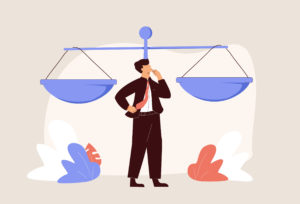Does it Really Pay to Win the Lottery?

Everyone dreams of winning the lottery. The thought of taking home hundreds of millions of dollars is enough to get even the laziest people off the couch and into their local quick-e-mart to purchase some tickets. The country has been abuzz during the last several days over the huge Powerball jackpot that ultimately reached $1.6 billion, according to lottery officials.
Of course, word broke last night that someone had finally won the big prize. The first reported winner was in California, however, subsequent reports noted that winning tickets were also sold in Tennessee and Florida. Several other reports have surfaced that there were a few $1 million dollar winners, as well. So now that these lucky lotto winners have struck it rich, just how fortunate are they.
First, because there were three winning tickets the winners will have to split the jackpot three ways, thus no one will become an instant billionaire. Even if only one winning ticket has been sold that person would not be walking away with a billion dollars. That’s because every lottery winner has a silent partner, like it or not. The taxman always gets a cut of any lottery prize, but exactly how much in taxes a lottery winner pays depends on several factors.
The IRS treats lottery winnings as income and therefore it is taxed at the highest rate of 39.6 percent. When you win a lottery prize the IRS takes 25 percent right off the top. The other 14.6 percent is paid as part of your taxes the following year. So for example, if the winner chose the lump sum payment of the $1.6 billion, they would receive $930 million minus the 25 percent federal tax off the top. That’s a $232.5 million tax bill up front, with another $135.8 million the following year.
That would leave you with about $560 million. That’s still a nice take-home prize, for sure, but not the $1.6 billion you were dreaming of. Additionally, if you live in a state with state income tax, you will be responsible for those taxes as well. Living in some locations, like New York City, would cost you state, county and city taxes on top of the federal tax, which could add up to another 15 percent of your winnings.
Don’t think you can give away a bunch of your money tax-free either. You will be responsible for the gift tax if you go over the allotted $14,000 a year per recipient as well. The gift tax is 40 percent if you go over your lifetime gift exemption amount of $5.45 million. In any case, the best thing to do if you win the lottery is to meet with a competent tax accountant/advisor as soon as you can, even before you claim your prize. This will give you the best opportunity to save as much as you can on taxes.
Does Your Company Need a Fairness Opinion?
Does Your Company Need a Fairness Opinion? Although not required by statute or regulation, fairness opinions have become an important component of the board of directors and executives deliberation process as they seek to satisfy their fiduciary duties to shareholders and act with due care in an informed manner. Fairness opinions are prepared for and…
Tax Record Retention Guide
Storing tax records: How long is long enough? Tax Record Retention April 15 has come and gone and another year of tax forms and shoeboxes full of receipts is behind us. But what should be done with those documents after your check or refund request is in the mail? Federal law requires you to maintain…
3 Reasons Why Owning a Commercial Property May Make You More Money in Real Estate Investment
Making a Commercial Property Investment If you ever have been a landlord for residential property, I am sure that you get complaints from tenants about leaking roofs in the middle of the night. But what keeps most people back from investing in commercial real estate is the fear of the unknown since not many of…
Sec 1045: Small Business Stock Rollover of Gain
The Beauty of Section 1045 Enacted as part of the Taxpayer Relief Act of 1997 (effective for sales after August 5, 1997), a taxpayer other than a corporation may elect to roll over capital gains from the sale of qualified small business stock held for more than six months if another small business stock is…



